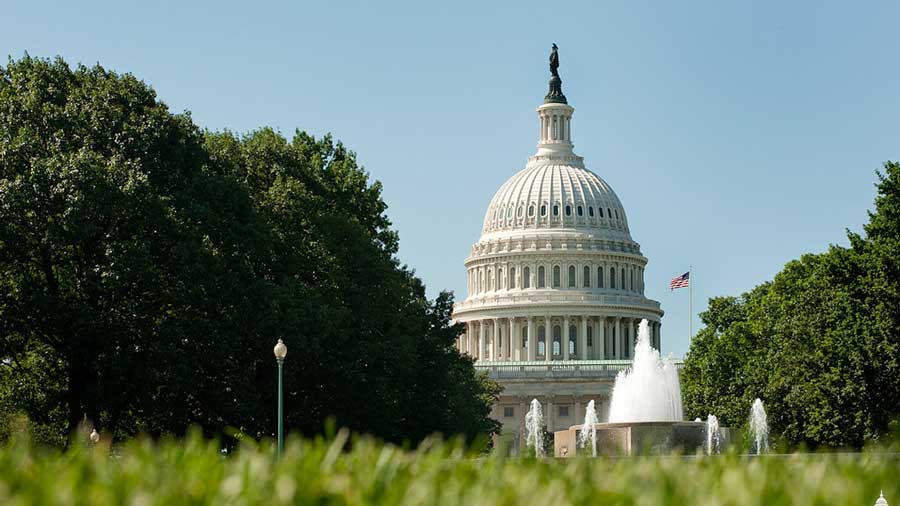Sides Still Talking About Compromise Sex Trafficking Bill

The smarter way to stay on top of broadcasting and cable industry. Sign up below
You are now subscribed
Your newsletter sign-up was successful
There may be some movement in the battle over a bill that would allow states and individuals to go after websites that abet sex trafficking.
In a Senate Commerce Committee hearing Tuesday, Sept. 19, bill backers said there were talks about narrowing the definition of what constitutes the kind of knowledge of the offending activity that would remove the current Communications Act shield from liability for websites from civil law suits and state prosecutions.
An Internet Association witness, whose members include computer giants, said they were willing to talk about a narrow amendment that made clear exactly what constituted knowledge of sex trafficking that would trigger legal liability, both civil and criminal, and work with Congress to make that happen.
Related: Computer Cos. to Hill: We're Part of Sex Trafficking Solution
Bill backers have argued that the language is already narrow, while the social media giants like Facebook and Google and Twitter have argued that they could suddenly be liable for any activity of their collective billions of users. That is given that they know some bad stuff has to be going on given the sheer volume of that traffic.
But there appeared to be some give there. Bill co-sponsor Richard Blumenthal (D-Conn.) said that while he felt the bill was narrowly targeted and carefully crafted, they were still talking and working to make it "even clearer and more precise."
One senator signaled that Silicon Valley needed to offer specific ways to improve the language, rather than simply raise objections. Internet Association witness Abigail Slater offered some of that specificity, saying it was about knowledge of facilitating conduct versus knowingly facilitating it, and that their lawyers said there was a difference that needed addressing, suggesting that was what Blumenthal had been talking about in making it more precise.
Related: International Communications Privacy Bill Reintroduced
But Blumenthal also warned that some companies may want to continue to defend the liability shield, given they seldom welcome added legal accountability, but that the issue was one of social and moral responsibility, of giving victims their day in courts, and that it was "time to open the courthouse doors to those sold into slavery via ads with absolute impugnity. He said the "knowingly facilitating, supporting or assisting" language was a high bar.
The hearing displayed the tension between some Democrats and Silicon Valley, and some Democrats and others in their own party.
For example, while Blumenthal was passionate about the need for the bill and suspicious of edge provider pushback, Sen. Ron Wyden (D-Ore.), who co-authored the Communications Decency Act section (230) that the bill would amend, said it already gave the authority to go after bad actors, and raised the issue of hurting the internet economy and innovators.
Related: Democrats Introduce Data Broker Bill
One of the criticisms of weakening the liability protections for websites, both for posts they can't control and for actions they take to weed out bad actors, is that it could, perversely, discourage such oversight, essentially incentivizing them to know less about what is going on their sites because what they know could hurt them in court.
Blumenthal wasn't buying that argument, saying he had more faith in web providers and that they would be incentivized to do more, not less, to crack down on sex trafficking.
Another big backer of the bill is Sen. Bill Nelson (D-Fla.), ranking member of the committee, whose state was third in reported instances of sex trafficking.
He said such traffickers should not be able to hide behind a decades old legal shield, and that the bill would eliminate what is in effect a legal safe harbor for sex trafficking sites that knowingly provide a platform. He said the bill would not "take a sledge hammer" to the internet, but was instead a targeted approach that can help end the scourge of child sex trafficking.
Sen. Rob Portman (R-Ohio), who teamed with Blumenthal on the bill, said that law enforcement needed the tools to take on the traffickers, a point seconded by California Attorney General and former member of Congress, Xavier Becerra, who said law enforcement was fighting with both hands tied behind its back due to Sec. 230's liability protections, or at least as the courts have interpreted them. Becerra was around when the section was adopted and thinks the courts have misinterpreted the section.
Portman pointed out that Google has conceded tech's role in human trafficking—it has moved from the street corner to the smart phone—and that predators often make their first contact via the web.
The key to a compromise—bill backers want Silicon Valley on board if possible—will be whether stakeholders can find the balance of language that removes the shield from the bad actors, while not unintentionally sweeping up good actors or disincentivizing them from policing their sites.
But there is a powerful force for compromise. Doing nothing to stem what Sen. Corey Booker (D-N.Y.) said was a modern day slave trade would be a hard sell come election time.
The smarter way to stay on top of broadcasting and cable industry. Sign up below
Contributing editor John Eggerton has been an editor and/or writer on media regulation, legislation and policy for over four decades, including covering the FCC, FTC, Congress, the major media trade associations, and the federal courts. In addition to Multichannel News and Broadcasting + Cable, his work has appeared in Radio World, TV Technology, TV Fax, This Week in Consumer Electronics, Variety and the Encyclopedia Britannica.

